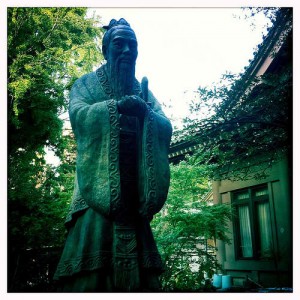Japanese philosophy was inextricably associated with aesthetics, culture, ethics, politics, and religion and wasn’t practiced as a distinct discipline in itself. The most distinctive characteristic of Japanese philosophy is how foreign philosophies has been assimilated and adapted to its native worldview. Historically, Japan experienced periods of intense cultural and political exchange with the Korean peninsula and China, followed by long periods of isolation when it successfully resisted foreign invasion until 1945. And although it borrowed ideas freely throughout its history, there is always a distinctively Japanese cultural context in Japanese philosophy.
Kitetsugaku, the Japanese term for philosophy (abbreviated from kikyū tetsuchi, “the science of seeking wisdom”), was coined by Nishi Amane in 1862 and was abbreviated further, twelve years later, to now the standard tetsugaku. A word describing something the Japanese perceived sometimes favorably, as a necessary condition to develop a modern society, sometimes with distrust, as a loss of spirituality or an ethnocentric menace, but always as foreign and completely alien to their culture. This led Nakae Chōmin, a Japanese journalist, political theorist and statesman in Meiji-period, to declare in 1901 that: from antiquity to the present day, there has never been any philosophy in Japan.Continue Reading
Originally posted on August 22, 2020 @ 7:18 pm
